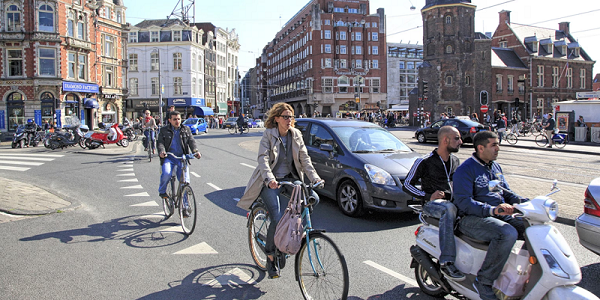
Studying, Working, and Living in the Netherlands as an International Student
Table Of Content
The Netherlands, often referred to as the “Gateway to Europe,” is a country that effortlessly blends tradition with innovation. Known for its picturesque landscapes, progressive society, and high quality of life, the Netherlands is an increasingly popular destination for international students. This comprehensive guide will explore why the Netherlands stands out as an ideal location for studying, working, and living abroad. We will delve into its peaceful ranking, passport strength, top universities, tuition fees, scholarships, cost of living, job opportunities, economic standing, and the requirements for proof of funds for international students.
Why Choose the Netherlands?
1. Peaceful and Secure Environment
The Netherlands is one of the most peaceful nations globally, consistently ranking high on the Global Peace Index. In 2023, the country was ranked 21st, reflecting its low crime rates, stable political environment, and robust legal system. For international students, this means studying in a safe, welcoming, and inclusive environment where they can focus on their academic and personal growth without concerns about security.
2. Global Passport Ranking
The Dutch passport is one of the most powerful in the world, ranking 4th globally in 2023. Dutch citizens enjoy visa-free or visa-on-arrival access to 189 countries, showcasing the Netherlands’ strong international relations and global influence. This strength reflects the country’s commitment to maintaining open and beneficial relationships across the globe, further adding to the appeal of studying and living in the Netherlands.

Studying in the Netherlands: A Hub of Innovation and Excellence
Top Universities for International Students
The Netherlands is home to some of the world’s most prestigious universities, known for their high academic standards, cutting-edge research, and global outlook. The Dutch education system emphasizes creativity, critical thinking, and active learning, making it particularly attractive to international students. Here are some of the top universities in the Netherlands that offer English-taught programs:
University of Amsterdam (UvA)
As one of the largest and most prestigious universities in Europe, UvA is known for its diverse range of programs, particularly in the humanities, social sciences, and natural sciences.
Delft University of Technology (TU Delft)
A globally recognized technical university, TU Delft is a leader in engineering, technology, and design, making it an ideal choice for students interested in innovation and applied sciences.
Leiden University
The oldest university in the Netherlands, Leiden University is renowned for its strong research focus, particularly in law, political science, and natural sciences.
Erasmus University Rotterdam
Erasmus University is highly regarded for its business, economics, and social sciences programs. Its strong connections with the corporate world provide students with excellent career opportunities.
Utrecht University
A leading research university, Utrecht offers a wide range of programs in natural sciences, social sciences, and humanities, attracting students from around the globe.
Tuition Costs for International Students
Education in the Netherlands is known for its affordability, especially when compared to other Western countries like the United States or the United Kingdom. Tuition fees for non-EU/EEA students typically range from €6,000 to €20,000 per year, depending on the program and institution. Programs in business, law, and engineering are generally more expensive, reflecting the specialized knowledge and resources required. For example:
Bachelor’s programs can range from €6,000 to €15,000 per year.
Master’s programs typically range from €8,000 to €20,000 per year.
The Dutch government and universities are committed to making education accessible, and many institutions offer tuition waivers or discounts for academically outstanding students.
Scholarships for International Students
To further support international students, the Netherlands offers a variety of scholarships that can help cover tuition fees and living expenses. Some of the most notable scholarships include:
Holland Scholarship
This scholarship is available to non-EU/EEA students and provides a one-time grant of €5,000 to help cover the first year of study. It’s offered by the Dutch Ministry of Education, Culture, and Science in conjunction with Dutch research universities and universities of applied sciences.
Erasmus Mundus Joint Master Degree Scholarships
Funded by the European Union, these scholarships are available for students enrolling in joint master’s programs offered by a consortium of European universities, including Dutch institutions. They cover tuition fees, travel costs, and a monthly stipend.
Orange Tulip Scholarship
Offered by Nuffic, the Dutch organization for internationalization in education, this scholarship is available to students from certain countries. It provides partial funding for a variety of programs across Dutch universities.
University-Specific Scholarships
Many Dutch universities offer their own scholarships based on academic merit, financial need, or specific fields of study. For instance, the University of Amsterdam offers the Amsterdam Merit Scholarship, which covers part or all of the tuition fees for exceptional students.

Working in the Netherlands: A Dynamic Job Market
Job Opportunities for Students
The Netherlands has a thriving job market, particularly in sectors such as technology, engineering, finance, and healthcare. International students are allowed to work part-time during their studies, with a limit of 16 hours per week during the academic year and full-time during the summer months. This allows students to gain valuable work experience, improve their language skills, and integrate more fully into Dutch society.
After graduation, international students can apply for a one-year orientation visa (zoekjaar), which allows them to stay in the Netherlands and search for employment. The Dutch job market is robust, with a strong demand for skilled workers, especially in the STEM (Science, Technology, Engineering, and Mathematics) fields. Many multinational companies have their European headquarters in the Netherlands, offering a wide range of job opportunities for international graduates.
Living in the Netherlands: A High Quality of Life
Cost of Living
The cost of living in the Netherlands varies depending on the city. Major cities like Amsterdam, Rotterdam, and The Hague are more expensive, with students needing to budget between €800 and €1,500 per month for accommodation, food, transportation, and other expenses. In contrast, smaller cities and towns offer a lower cost of living, making them more affordable for students. On average, here’s a breakdown of monthly expenses:
Rent: €300-€800
Food: €150-€250
Transportation: €40-€100 (depending on whether you cycle or use public transport)
Insurance: €100-€120
Miscellaneous: €100-€200
Cultural Diversity and Integration
The Netherlands is known for its inclusive and multicultural society. As a student, you will find a welcoming environment with a rich cultural scene, diverse communities, and numerous student organizations. The Dutch are known for their proficiency in English, making it easier for international students to integrate and feel at home. The country’s open-minded and tolerant attitude is reflected in its laws and social norms, making it a comfortable and enriching place to live.
Healthcare
Healthcare in the Netherlands is of high quality, with both public and private services available. International students are required to have health insurance, either through the Dutch healthcare system or private providers. Many universities also offer student health services at a reduced cost, ensuring that students have access to necessary medical care during their stay.
Proof of Funds for International Students
To obtain a student visa for the Netherlands, international students must provide proof of sufficient financial means to cover their living expenses and tuition fees for at least one year. The Dutch Immigration and Naturalisation Service (IND) requires that students show they have at least €12,000 per year for living expenses, which amounts to approximately €1,000 per month. This is in addition to the tuition fees. Proof of funds can be demonstrated through:
Bank statements
Scholarship letters
Sponsorship letters from parents or guardians
Student loans
This requirement ensures that students can support themselves financially without needing to rely solely on employment during their studies.

The Dutch Economy: A Strong and Dynamic Environment
Economic Ranking
The Netherlands boasts a strong and dynamic economy, ranking 17th globally by nominal GDP. It is characterized by a well-developed infrastructure, high levels of innovation, and a focus on sustainability. The country is a major hub for international trade, finance, and technology, making it an attractive destination for students interested in these fields.
The Dutch economy is also highly resilient, with a strong focus on sectors such as agriculture, energy, logistics, and high-tech industries. This economic stability translates into numerous job opportunities for both local and international graduates.
Conclusion: The Netherlands – A Gateway to Global Opportunities
The Netherlands offers an exceptional environment for international students, combining high-quality education, a vibrant job market, and a high standard of living. With its strong global connections, innovative spirit, and inclusive society, the Netherlands is an ideal destination for students looking to study, work, and live in Europe.
Whether you are drawn to the cutting-edge research opportunities, the diverse cultural experiences, or the chance to explore Europe from a central location, the Netherlands has much to offer. Embark on your journey to the Netherlands today and discover why it is one of the best places in the world to study, work, and live as an international student.
I BE MAZI TT..







-
-
-
-
-
-
-
-
-
Show CommentsCan you be more specific about the content of your article? After reading it, I still have some doubts. Hope you can help me.
Thank you for your sharing. I am worried that I lack creative ideas. It is your article that makes me full of hope. Thank you. But, I have a question, can you help me?
I don’t think the title of your article matches the content lol. Just kidding, mainly because I had some doubts after reading the article.
Thank you for your sharing. I am worried that I lack creative ideas. It is your article that makes me full of hope. Thank you. But, I have a question, can you help me?
Thank you for your sharing. I am worried that I lack creative ideas. It is your article that makes me full of hope. Thank you. But, I have a question, can you help me?
Your point of view caught my eye and was very interesting. Thanks. I have a question for you.
Thank you for your sharing. I am worried that I lack creative ideas. It is your article that makes me full of hope. Thank you. But, I have a question, can you help me?
Thank you for your sharing. I am worried that I lack creative ideas. It is your article that makes me full of hope. Thank you. But, I have a question, can you help me? https://www.binance.com/si-LK/register?ref=LBF8F65G
Thank you for your sharing. I am worried that I lack creative ideas. It is your article that makes me full of hope. Thank you. But, I have a question, can you help me?